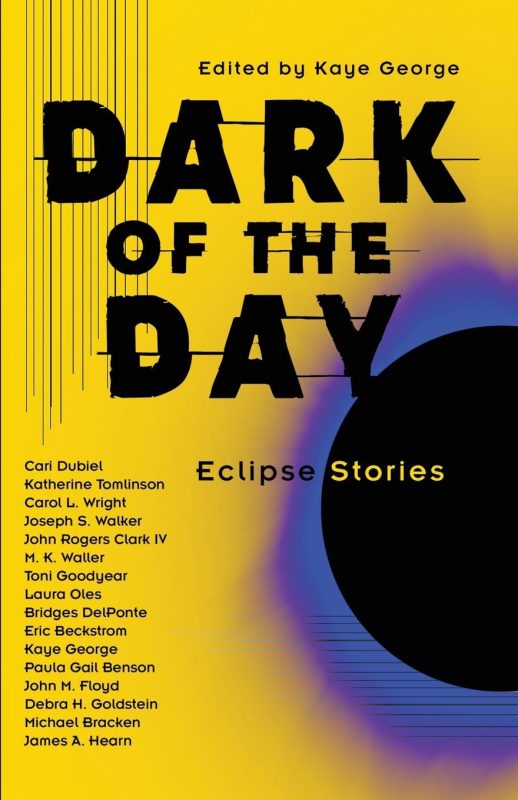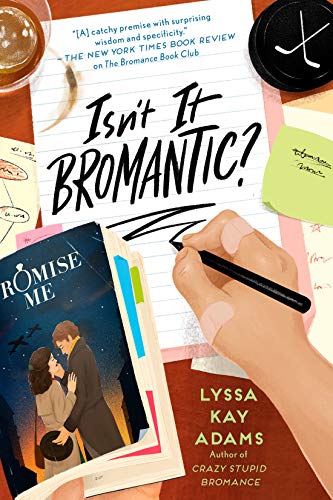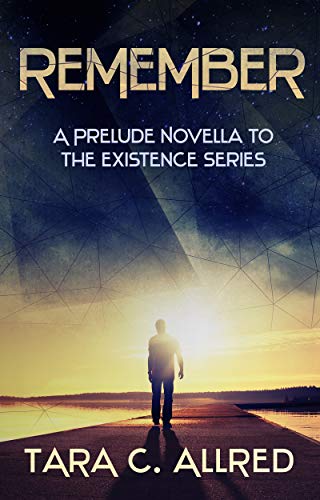Featuring Kidd Wadsworth, Author of the Month
February 28, 2023 by marianne h donley in category Featured Author of the Month, Infused with Meaning by Kidd Wadsworth tagged as Featured Author of the Month, kidd wadsworth
Kidd Wadsworth writes to bring to life our magical, fire-breathing world. She believes we are super heroes. It’s time we put on our capes.
You can read Kidd’s monthly column, Infused with Meaning, here on the 25th of every month. More information about Kidd is found on her website, make sure you take the time to read her “about me” section.
A selection of books that include Kidd’s short stories.
0 0 Read more
The Gifts by Kidd Wadsworth
February 27, 2023 by Kidd Wadsworth in category Infused with Meaning by Kidd Wadsworth tagged as fiction, kidd wadsworth, Seasons Readings, short story, Short Story Award, short story contest
She placed the three gifts on the mantle, each beautifully wrapped: one in gold foil paper with a white ribbon it’s bow a dove, the second in green and white striped paper like a mint candy cane was topped with a green paper pine tree, the third in classic red and white Merry Christmas paper was adorned with three large red bows. Otherwise, the room and house were undecorated. She couldn’t bring herself to carry all the boxes of ornaments and lights down from the attic. Mike used to that. He would shout, “Ho, ho, ho and where’s my hot toddy!” Christmas decorating had always begun the same way with Mike carrying box after box down the stairs and her in the kitchen juicing lemons and then screaming, “I forgot to buy bourbon!”
By the time she returned from the store, he’d have the tree up, Christmas music playing, and strings of lights spread out on the floor. “Did you buy replacement bulbs?”
She turned on the gas fireplace. It was cozy room—a lonely room. She pushed down the yearning inside of her soul. “Don’t go there,” she whispered.
She bulwarked heart with memories of other Christmases. Presents and more presents, how rich her parents had been. And each Christmas morning ended the same way, with wrapping paper strown about and delicious smells of ham wafting from the kitchen, and presents, so many presents and not a single gift she liked: clothes, all in shades of navy and mauve, clothes she would never wear, high-heeled shoes that hurt her feet, make-up—didn’t her mother ever look at her face? She didn’t use makeup. At her church they had a Christmas tree with tags on it: stuffed animal, girl’s coat size 8, mittens, boy’s backpack, etc. Surely her Christmases were like the Christmases of those children. All the gifts bought by people who didn’t know them, who didn’t really understand them. Year after year, she slowly learned. Don’t get your hopes up. No one knows you. You are their daughter, but they don’t see you.
Now twenty-eight years old she understood. She had reconciled her expectations to the reality of the world. It was impossible to really know another human being. So, every Christmas she bought herself presents. All sorts of wonderful things like copper cookie cutters and an antique bookshelf. She cooked what she loved including pumpkin pie with extra cloves. She never offered anyone a slice of her pumpkin pie. That would have been cruel—too, too cruel.
And every Christmas she put Mike’s gifts back up on the mantle and dreamed of what could be inside. Their first Christmas together he had stormed out when she refused to open his present. “Please understand, I just can’t be disappointed anymore. What we have is so special, I don’t want to damage it. I can’t bear knowing that you’re the same as my parents. That you don’t really get me.”
He had come back, of course he’d come back. He’d held her.
The next Christmas she’d put the green and white striped present on the mantle, and their third Christmas the present with the red and white Merry Christmas paper. By then Mike had adapted. He brought home hundreds of small things for her. A new mixer, he’d gotten her the red one to match the paint she’d picked out for the kitchen walls. A cup holder for her car that expanded to hold her giant coffee mug. Caffeine and cloves, yup! He was Santa all year long.
“Someday you’ll trust me,” he’d said. “Someday, you’ll open the gifts.”
But that someday didn’t come—no one is supposed to die at twenty-six. She looked up at the gifts on the mantle. “The last two probably just have rocks in them to make them rattle. I mean he wouldn’t keep wrapping up stuff knowing I wasn’t going to open the presents.”
She turned away and turned back again.
“My memories are all I have, Mike. I don’t want to find out that it wasn’t really as good as I thought it was. I don’t want to know that you were only human. You tried hard. I know you did. And this way, I can keep on pretending that you loved me, that you really understood.”
She sipped her hot toddy.
This is the beginning of a story I’m considering for the Bethlehem Writer’s Group new anthology. By the way, did I mention the Bethlehem Writer’s Group’s short story contest is now open for submissions? Click here for details: https://bwgwritersroundtable.com/
Kidd Wadsworths Stories
Trash Day by Kidd Wadsworth
January 29, 2023 by Kidd Wadsworth in category Infused with Meaning by Kidd Wadsworth tagged as humor, kidd wadsworth, Neighbors, short story, trash day
My neighbor, Sterling, complains. It seems I don’t bring my trash cans up promptly. But hey, I’ve got a life, and they’re TRASH CANS!
I’ve got a big brain, too. One morning as I watched Sterling take his trash to the curb and leave for work, I got an idea, a how-the-Grinch-stole-Christmas-idea. I grinned and patted my little dog on the head.
As the garbage truck rounded the corner, I ran down to the curb and drug my neighbor’s still-full garbage cans back up his driveway. When the truck had passed by, I drug them down again.
That evening, eager to see Sterling’s expression, I left work early and returned to find him standing at the curb gazing bewildered at the trash still in his trash cans while mine, and everyone else’s, were clearly empty. The next week, he put his heaping cans at the curb. Quickly, I once again hauled them back up his driveway, returning them to the curb when the garbage truck had passed.
That night, his shouting rocked the neighborhood. “No, they’re not picking up my trash! It’s been two weeks! 110 Paxinosa Avenue!” I felt sorry for the trash guys. Well—almost.
The next week, he had two cans full of trash and three extra bags. It was a trash party! I crossed my fingers, praying he wouldn’t wait around for the truck. He paced on the sidewalk, but after several glances at his cell phone, he got in his light blue Prius, and drove away. I’d barely gotten the trash up his driveway when I heard the truck pull around the corner. On a hunch, I stowed the cans inside his garage and snuck out the back gate.
Wow, talk about dedicated. Those garbage guys actually walked up his driveway and looked around for the cans. They clearly had a note in their hands. They checked his address. Knocked on his door. All this for trash. Impressive.
When they left, I put the cans and the bags at the curb. Took two trips. That night, a volcano erupted next door. I felt a little guilty—not a lot guilty—but a little guilty. I mean, I felt guilty in between giggles.
On trash day eve, nightmares of my neighbor assaulting me with a garbage can lid and a turkey bone rocked my sleep. I woke bleary eyed, to see my neighbor standing at the curb, surrounded by trash. I decided it was time I fessed up. About then, the garbage guys arrived. I ducked behind my window curtains. It was ugly! The shouting, the claims of innocence, “There was no trash!” Shall I speak of the birds shot in the air, the words beginning with … well you get the picture.
About a week later, my neighbor had a backyard barbeque. I brought beer. There were four of us neighbors (right, left and across the street), beers in hand, feet on Sterling’s brick retaining wall, when Sterling told the story.
“No?”
“Really?”
I thought no one knew. But everyone has windows facing the street. When Sterling went inside for more chips, Frank winked at me. Mark held out his hand. “Fifty, or I tell him now.”
I paid.
*
Occasionally, I try humor. Let me know if I got it right.
You can find some of Kidd’s stories in the following anthologies.
For Christmas . . .
December 25, 2022 by Kidd Wadsworth in category Infused with Meaning by Kidd Wadsworth
Give yourself the gift of community.
2020 was my worst year ever. To give you some perspective, in 2019 my dad died, but I do not consider 2019 to be as bad as 2020. In 2006, the high-tech startup I founded failed. In 2000, I miscarried. Why then would 2020, and not one of those other years remain in my mind as the year I most wish I’d skipped.
Let’s start with my miscarriage in January 2000. Yes, it was painful, and discouraging—I was undergoing fertility treatments—but on December 17th my son was born. The trauma of losing a child in the womb dimmed when I held Anthony in my arms.
When my business failed in 2006, I came home to a family that needed me, to neighbors and friends I’d ignored to work on my business. They greeted me with open arms.
When my dad died, I grew closer to my mom. In grief, my family came together.
Each time when tragedy struck, the people around me comforted me, they brought joy into my life. 2020 was altogether different. In 2020, I lost my community.
Yes, I am a liberal, one of those terrible people who consistently votes for representatives and senators that can’t balance a budget to save their lives. I supported wearing masks, but when I put on a mask and walked among a masked people, I sank into depression. I missed the smiles of my neighbors. I suffer from hearing loss and without seeing another’s lips move, I also began to miss and misunderstand the words of others. Conversation became difficult. Because of the terrible speakers on my old computer, Zoom was a nightmare.
I suppose what happened was inevitable. Like a character in a bad novel, the emotions I felt manifested themselves physically. I fell and broke my right leg in two places. Two weeks later, I contracted the shingles. Never having seen the shingles before, I delayed going to the doctor until it was too late for the anti-viral to work. I got the disease in late September. I was finally off the pain medication in mid-January. I left the crutches behind in March.
Finally, have regained some of my former strength, in the summer of 2021, I flew home to Texas to see my family. I even embarked on a road trip traveling by car in a huge lopsided triangle from Dallas to Austin to Houston and back again. Along the way, I saw family and friends—and I talked and talked. Me, the classic introvert, talked. No antidepressant ever lifted a person’s mood faster. The sun shone brighter. I had more energy. Food tasted fantastic. Life, like a cherry blossom, bloomed for me.
Finally, I understood. I needed other people. I needed community.
This year I’ve made a new resolution. Yes, I need to exercise more. Yes, I plan to write another novel. Yes, yes, yes, there are so many things knocking on the door of my mind, calling out, demanding attention. But this year is the year I will give myself a different kind of gift. This year I plan to consciously seek out community.
I will listen quietly to my friends. When they are suffering, I will reach out to them and offer what help I can. When they are celebrating, I will wink and buy a sugary scone to share with them. When we are separated by distance, I will write to them long letters and phone at least once a month. I will plan visits. I will travel to see them.
I will slow down when about my daily chores, taking time to speak to strangers, to greet and smile at them.
I will carry in my pocket at all times two ten-dollar bills, so I will have something to give to those in need whenever I encounter them.
I will become an active member of a group which is seeking to positively impact our environment.
I will seek out a supportive faith community and both listen to them as they speak about their beliefs and dare to talk to them about mine.
I will try to be God’s friend.
Wishing each of you a Christmas brimming over with the laughter of friends and family,
Kidd
2 0 Read moreHi, May I Help You, Please
November 25, 2022 by Kidd Wadsworth in category Infused with Meaning by Kidd Wadsworth tagged as flash Fiction, kidd wadsworth, short story, teens, Texas
I was sixteen and working my first job at Wendy’s Old Fashioned Hamburgers. We were a lively crew. Jerry had the front register, Juanita and Javier were making sandwiches and scooping fries, Greg had the grill, and I was on the back register.
It was a hot day, scorching hot, hot as only Texas does hot, when the big boss, the district supervisor, left his skyscraper in Dallas and drove down to inspect and grade us. He didn’t know, and didn’t care, that we enjoyed the camaraderie of our team, took pride in our work, and routinely invited our family and friends to come to the restaurant. His opinion of us was all too clear in the way he strutted about, his huge smile never touching his eyes. It didn’t matter that the restaurant ran like a well-oiled machine; we were lazy hoodlums that needed to be whipped into shape. After he’d chastised Jerry and the others for trivial mistakes—I believe Javier wasn’t properly using the pickles to spread out the ketchup on the bun—the district supervisor meandered on back to my register to judge me.
Just so you know, I might have inherited a bit too much Texas ornery, Texas gall and Texas stubborn. Of course, I personally don’t think a person can have too much ornery. And gall, life is just plain boring without gall. Stubborn though . . . well . . . stubborn does tend to get a person into trouble.
Ding.
I stepped on the pedal. “Hi, may I help you please?”
Through the speaker came a broad Texas accent I easily recognized, “Yeah. I’ll have fries, a large Sprite, a single, with cheese, tomato, everything and extra ketchup.”
Reader, are you paying attention? The customer said, “Everything and extra ketchup.” Javier, standing not ten feet away, ears pricked to the speaker, laid a bun open on the sandwich board. Greg dropped a single patty of meat dripping melted cheese onto the bottom half of the bun.
I wrote the order down on the outside of the takeout bag. Fries, lg sprite, single, cheese, tomato, everything, no mustard, no mayonnaise.
Right on cue, know-it-all-supervisor-guy spoke, “He said extra ketchup, not no mustard, no mayonnaise.”
I didn’t bother to turn my head and look at him. No, that would’ve been polite. Instead, I opened the bag and put it on the end of the sandwich station and spoke with my back turned toward him. “But he meant no mustard, no mayonnaise.”
Without seeing the supervisor’s face, I knew his fake smile was history. Tension vibrated from his body. After all, time was running out. The car would begin rolling forward any second. If he wanted to clarify the order—
“Ask him if he wants mustard and mayonnaise.”
At the sandwich station, Javier never paused. He kept right on making the sandwich—with no mustard and no mayonnaise. I always liked Javier. Juanita dropped the fries into the open sack and gave me a wink.
The district supervisor repeated, “Ask him if he wants mustard and mayonnaise.”
“I will not,” I said, pulling the drink. “He’s already given me his order.”
The beast shoved me aside and stepped on the pedal. “Sir, would you like mustard or mayonnaise on your sandwich?”
The customer’s loud Texas twang echoed through the speaker, “NO! I told ya, I only want ketchup!”
I tried and failed, to keep the grin off my face. Javier chuckled as he put the neatly wrapped hamburger in the bag.
Yeah, we were only teenagers, working a summer job for minimum wage, but we knew how someone from our hometown ordered a hamburger.
You know, that big boss, that supervisor guy from the corporate office, he didn’t say another word to me all day. Sometimes you’ve just gotta love that Texas stubborn.
Kidd has stories in the following anthologies.
Kidd Wadsworth is also the author of the fantasy novel “The Death of Magic” which you can now read for FREE at https://www.royalroad.com/fiction/59915/the-death-of-magic
0 1 Read moreAffiliate Links
A Slice of Orange is an affiliate with some of the booksellers listed on this website, including Barnes & Nobel, Books A Million, iBooks, Kobo, and Smashwords. This means A Slice of Orange may earn a small advertising fee from sales made through the links used on this website. There are reminders of these affiliate links on the pages for individual books.
Search A Slice of Orange
Find a Column
Archives
Featured Books
ISN’T IT BROMANTIC
With his passion for romance novels, it was only a matter of time before Vlad wrote one.
More info →THE FORMIDABLE EARL
He's breaking the rules for one woman, and coming dangerously close to falling in love…
More info →REMEMBERED: A Prelude Novella to The Existence Series
One invention and two men hoping to change the way humans connect—through memory exchanges
More info →SAVAGED DREAMS
How much will she risk for love? How far will he go for fame?
More info →Newsletter
Contributing Authors
Search A Slice of Orange
Find a Column
Archives
Authors in the Bookstore
- A. E. Decker
- A. J. Scudiere
- A.J. Sidransky
- A.M. Roark
- Abby Collette
- Alanna Lucus
- Albert Marrin
- Alice Duncan
- Alina K. Field
- Alison Green Myers
- Andi Lawrencovna
- Andrew C Raiford
- Angela Pryce
- Aviva Vaughn
- Barbara Ankrum
- Bethlehem Writers Group, LLC
- Carol L. Wright
- Celeste Barclay
- Christina Alexandra
- Christopher D. Ochs
- Claire Davon
- Claire Naden
- Courtnee Turner Hoyle
- Courtney Annicchiarico
- D. Lieber
- Daniel V. Meier Jr.
- Debra Dixon
- Debra H. Goldstein
- Debra Holland
- Dee Ann Palmer
- Denise M. Colby
- Diane Benefiel
- Diane Sismour
- Dianna Sinovic
- DT Krippene
- E.B. Dawson
- Emilie Dallaire
- Emily Brightwell
- Emily PW Murphy
- Fae Rowen
- Faith L. Justice
- Frances Amati
- Geralyn Corcillo
- Glynnis Campbell
- Greg Jolley
- H. O. Charles
- Jaclyn Roché
- Jacqueline Diamond
- Janet Lynn and Will Zeilinger
- Jaya Mehta
- Jeannine Atkins
- Jeff Baird
- Jenna Barwin
- Jenne Kern
- Jennifer D. Bokal
- Jennifer Lyon
- Jerome W. McFadden
- Jill Piscitello
- Jina Bacarr
- Jo A. Hiestand
- Jodi Bogert
- Jolina Petersheim
- Jonathan Maberry
- Joy Allyson
- Judy Duarte
- Justin Murphy
- Justine Davis
- Kat Martin
- Kidd Wadsworth
- Kitty Bucholtz
- Kristy Tate
- Larry Deibert
- Larry Hamilton
- Laura Drake
- Laurie Stevens
- Leslie Knowles
- Li-Ying Lundquist
- Linda Carroll-Bradd
- Linda Lappin
- Linda McLaughlin
- Linda O. Johnston
- Lisa Preston
- Lolo Paige
- Loran Holt
- Lynette M. Burrows
- Lyssa Kay Adams
- Madeline Ash
- Margarita Engle
- Marguerite Quantaine
- Marianne H. Donley
- Mary Castillo
- Maureen Klovers
- Megan Haskell
- Melanie Waterbury
- Melisa Rivero
- Melissa Chambers
- Melodie Winawer
- Meriam Wilhelm
- Mikel J. Wilson
- Mindy Neff
- Monica McCabe
- Nancy Brashear
- Neetu Malik
- Nikki Prince
- Once Upon Anthologies
- Paula Gail Benson
- Penny Reid
- Peter J Barbour
- Priscilla Oliveras
- R. H. Kohno
- Rachel Hailey
- Ralph Hieb
- Ramcy Diek
- Ransom Stephens
- Rebecca Forster
- Renae Wrich
- Roxy Matthews
- Ryder Hunte Clancy
- Sally Paradysz
- Sheila Colón-Bagley
- Simone de Muñoz
- Sophie Barnes
- Susan Kaye Quinn
- Susan Lynn Meyer
- Susan Squires
- T. D. Fox
- Tara C. Allred
- Tara Lain
- Tari Lynn Jewett
- Terri Osburn
- Tracy Reed
- Vera Jane Cook
- Vicki Crum
- Writing Something Romantic
Affiliate Links
A Slice of Orange is an affiliate with some of the booksellers listed on this website, including Barnes & Nobel, Books A Million, iBooks, Kobo, and Smashwords. This means A Slice of Orange may earn a small advertising fee from sales made through the links used on this website. There are reminders of these affiliate links on the pages for individual books.





















































